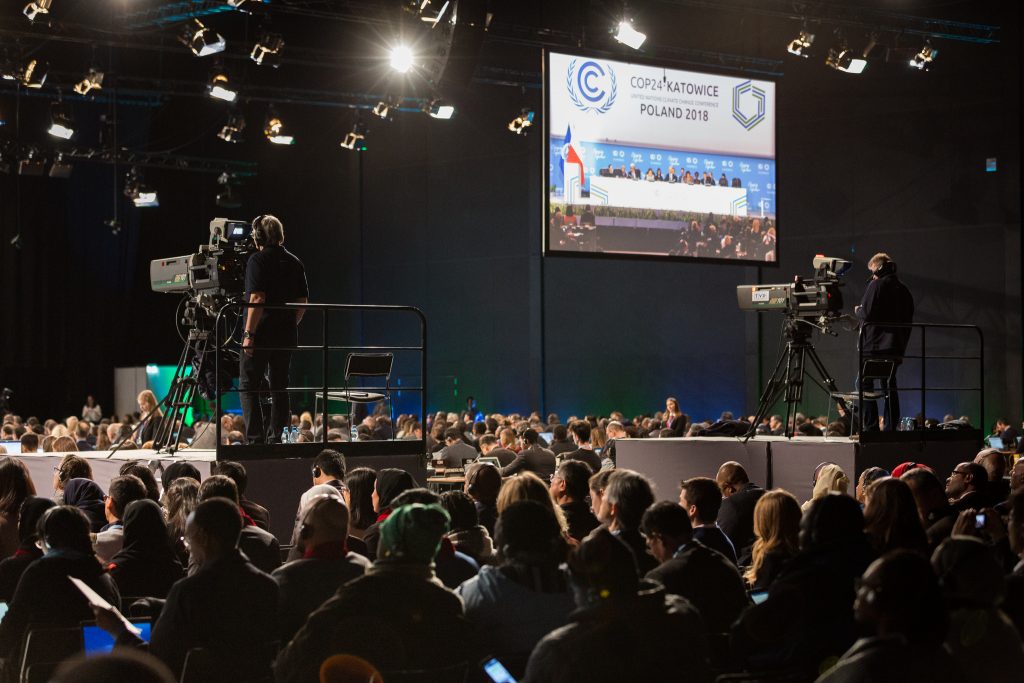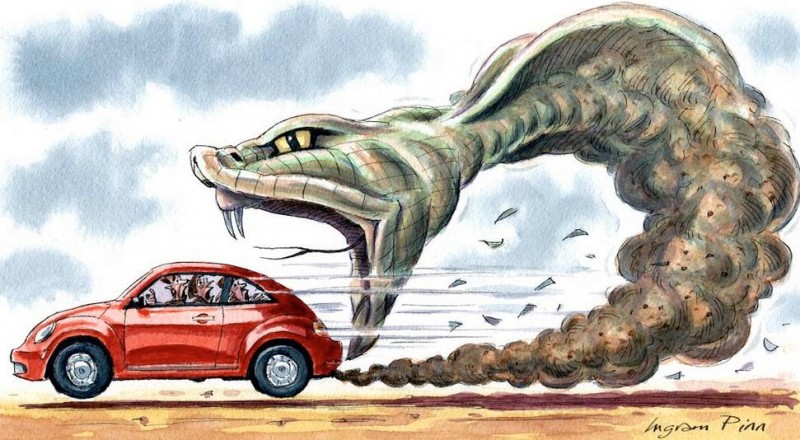Climate talks end with baby steps, not the giant leap required

December 17th, 2018
The cataclysmic impacts of climate inaction were spelled out in black and white in the latest Intergovernmental Panel on Climate Change report released in October.
The report made it stingingly clear that we must cut global emissions to near zero by 2050 to stand a chance of limiting global warming to 1.5°C above pre-industrial levels, the holding line laid out in the Paris Agreement.
The report, however, was equally clear that rapid, far-reaching and unprecedented policy change can limit warming to this threshold and allow us to dodge the worst impacts of a changing climate.
Any optimistic espoused in the report by the world’s leading scientific minds appears to have melted quicker than the polar ice-caps as the gavel dropped late on Saturday night to draw COP24 to a close.
While some will tell us to look to the positives, such as the fact that the Paris Agreement managed to “live on” and survive the world’s laggards (don’t worry, this doesn’t include Ireland for once) seeking to destroy the agreement.
Another positive we are told is that we finally have a common rulebook that will ensure all countries are reporting their progress (or lack thereof) in a consistent and transparent manner.
This is a “significant milestone” according to our own Minister for Climate Action Richard Bruton, an all-the-world plan to complement our forthcoming domestic all-of-government approach.
However, in reality, we have come out of yet another round of global climate negotiations with much fanfare and pomp, yet little movement on the key issues holding up climate action on a truly global scale.
The key sticking point is that many key sections – in particular, Article 6 on carbon trading – of the 156-page common rulebook have been left lacking in the ambition required.
Like the most difficult questions on a job application, key provisions in the rulebook have been kicked down the road, closer to deadline day.
As Stop Climate Chaos’ Oisin Coghlan said on the conclusion of the summit this weekend, the negotiators “took baby steps, when we need a giant leap”.

Photo: UNFCCC
Article 6 standoff
Despite smooth progress in the opening week, it proved impossible in the end to find common ground on a sticking point in Article 6 on post-2020 carbon markets.
A key concern relates to the Clean Development Mechanism, a flawed carbon offsetting mechanism brought in with the Kyoto Protocol.
The scheme allows developing countries to earn emission reductions credits for climate-friendly projects that they can trade to developed countries to put toward their own emission reductions targets.
The problem is that there are no clear rules as to who can account for the emission reductions tied to the carbon credit, leaving us with the double counting conundrum.
Coupled with the absence of limits on the use of markets, Carbon Market Watch (CNW) warned that this scheme would essentially allow countries to “fulfil” their climate commitments without reducing their emissions by a single tonne.
Several countries – including China and Brazil – wanted to see unused carbon credits from this system transferred over to the Paris Agreement.
If this happens, as CWM’s Gilles Dufrasne said during the talks, it could “blow a hole in the Paris Agreement” and allow countries to hit targets through “credits with no environmental integrity while cooking the books”.
So surely, we should have seen concrete moves in this area over the two weeks in Poland, right?
Wrong.
The rulebook has an IOU post-it stuck over the Article Six section, informing us that parties (not looking at you Brazil…) could not reach consensus on adjustments to carbon accountancy rules so as to avoid double counting of emission reductions.
We are told that the issue will continue to be discussed and debated behind closed doors “with a view” to presenting a draft decision for consideration at the next round of climate negotiations in Chile in November 2019.
The Article Six standoff shows that, despite all the warnings of impending climate catastrophe, financial interests can still trump (pardon the pun) planetary benefits.
While a few countries are taking the heat on this issue, and rightly so, we cannot ignore that the collective will of the ‘good majority’ was not strong enough to counter a few bad apples, or one (again not looking at you Brazil…).

COP24 Photo: UNFCCC
‘Sincerity’ of climate pledge
We have also only seen limited progress as to how financial support for poorer countries already battling the worst impacts of climate change will be provided and accounted for.
The rulebook will allow rich countries to count almost anything and everything as climate finance, including commercial loans.
This puts the “sincerity” of the $100 billion pledge for poor countries “into question”, says Jennifer Higgins, Policy Advisor for Christian Aid Ireland, who was at the negotiations in Poland.
“It has been a long road,” said the President of the conference, Polish Energy State Secretary Michał Kurtyka, as the summit came to a close on Saturday evening.
It will be an even longer journey down a road with a perilous end if we don’t take urgent action to fix the cracks in the Paris Agreement, widening with each COP that comes and passes.
[x_author title=”About the Author”]







